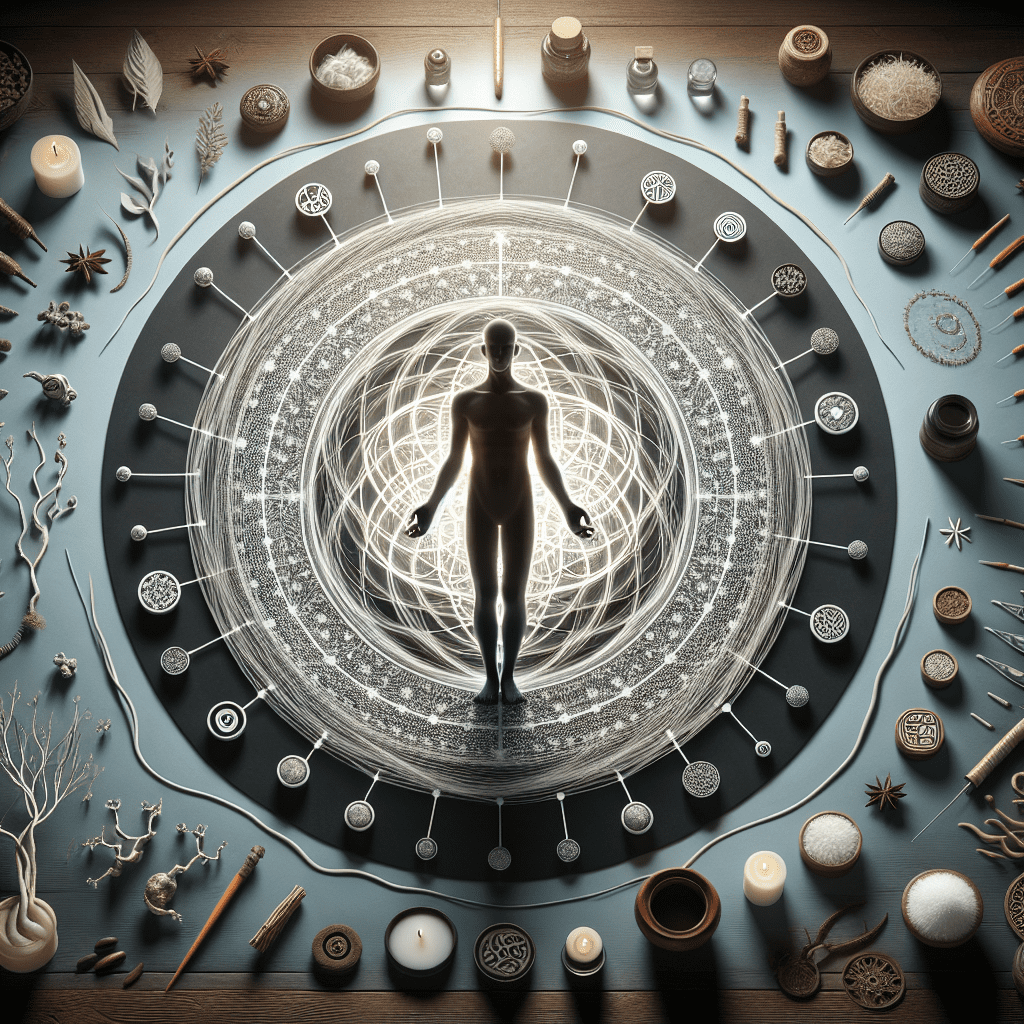In recent years, the fusion of artificial intelligence with healthcare has sparked a revolution in how we approach medical diagnostics and treatment. AI-powered systems are increasingly being deployed across various medical disciplines, offering unprecedented precision and efficiency in identifying health issues. This technological evolution has now reached the realm of traditional Eastern medicine, a healing system with roots stretching back thousands of years.
The integration of AI into healthcare diagnostics represents a fascinating intersection of cutting-edge technology and ancient wisdom. Modern algorithms can now analyze patterns in health data that might take human practitioners years to master. For instance, recent developments have shown AI systems achieving remarkable 98% accuracy in diagnosing various diseases simply by analyzing the color of the human tongue—a fundamental diagnostic technique in traditional Chinese medicine (TCM). This level of precision offers exciting possibilities for enhancing the effectiveness of time-honored Eastern medical practices.
The application of AI in traditional Eastern medicine spans numerous areas, including herbal screening, diagnostic principles, and treatment recommendations. These technological tools don’t aim to replace the human expertise cultivated over centuries but rather to complement and enhance it. By processing vast amounts of health data and identifying subtle patterns, AI health diagnostics can help practitioners make more informed decisions while still honoring the holistic philosophy that underpins Eastern medical traditions.
Ethical Considerations in AI-Enhanced Eastern Medicine
As we embrace the potential of AI health diagnostics in traditional medicine, we must navigate a complex landscape of ethical considerations. The marriage of ancient healing arts with modern technology demands thoughtful attention to issues of trust, transparency, and patient autonomy.
One paramount concern involves informed consent. When patients seek care based on Eastern medical principles, they may not anticipate or fully understand the role AI plays in their diagnosis and treatment recommendations. Healthcare providers have an ethical obligation to clearly communicate how AI systems are being used, what data they collect, and how this information influences medical decisions. This transparency builds trust and respects patient autonomy—core values in both Eastern and Western healing traditions.
Accountability presents another significant ethical challenge. When diagnoses and treatment plans emerge from a combination of AI analysis and human expertise, questions arise about responsibility for outcomes. If an AI system misses a critical health indicator or suggests an inappropriate treatment, who bears responsibility? Developing clear frameworks for accountability ensures that the integration of AI into traditional medicine enhances rather than diminishes patient care and safety.
The ethical implementation of AI in Eastern medicine also requires careful consideration of cultural sensitivity. These ancient healing systems are deeply embedded in cultural contexts and philosophical frameworks that may not easily translate into algorithmic parameters. Developers of AI health diagnostics must work closely with traditional practitioners to ensure these systems respect and preserve the cultural integrity of Eastern medical traditions rather than reducing them to mere data points.
Safeguarding Privacy in the Digital Age of Medicine
As AI systems collect and analyze increasingly personal health information, privacy concerns move to the forefront of our considerations. The intimate nature of health data—particularly when it encompasses the holistic approach of Eastern medicine that considers physical, emotional, and spiritual well-being—demands robust protection.
Traditional Eastern medicine often involves deeply personal assessments of an individual’s constitution, lifestyle, and environmental factors. When this information enters digital systems, it creates new vulnerabilities that must be addressed through comprehensive data security measures. Healthcare organizations implementing AI diagnostics must employ encryption, secure storage solutions, and strict access controls to protect this sensitive information from unauthorized access or breaches.
Regulatory compliance represents another critical aspect of privacy protection. As AI health diagnostics evolve, regulatory frameworks are still catching up to the unique challenges they present. Organizations must navigate a complex landscape of regulations like HIPAA in the United States or GDPR in Europe, which may not specifically address the intersection of AI and traditional medicine. Proactive compliance strategies that anticipate regulatory developments can help protect both patients and healthcare providers.
Perhaps most importantly, patients must retain control over their health data. This means implementing clear consent processes that allow individuals to understand how their information will be used, stored, and shared. It also involves giving patients mechanisms to access, correct, and even delete their data when appropriate. This patient-centered approach to data privacy aligns perfectly with the personalized nature of Eastern medicine, where individual agency in the healing process has always been valued.
Addressing Bias in AI Health Diagnostics
One of the most significant challenges in developing reliable AI health diagnostics systems lies in confronting and mitigating bias. AI algorithms learn from the data they’re trained on, which means they can inherit and amplify existing biases in medical practice and research.
Traditional medical research has historically underrepresented certain populations, including women, ethnic minorities, and older adults. When AI systems are trained primarily on data from well-represented groups, they may perform poorly when analyzing health information from underrepresented populations. This creates a risk of perpetuating or even exacerbating existing health disparities—a direct contradiction to the inclusive philosophy of Eastern medicine that sees each person as unique but equally deserving of care.
A striking example of this problem emerged when an AI system used across several U.S. health systems exhibited bias by prioritizing healthier white patients over sicker black patients for additional care. Such algorithmic discrimination can occur subtly, hidden within complex mathematical models, making it particularly dangerous and difficult to detect without intentional scrutiny.
To address these concerns, developers of AI health diagnostics must prioritize diversity in their training datasets. This means collecting health information from a wide range of populations and ensuring that traditional Eastern medical knowledge from various cultural contexts is represented. It also requires ongoing monitoring and testing of AI systems to identify and correct biases that may emerge as these technologies are deployed in real-world settings.
Transparency in algorithm development is equally important. When healthcare providers and patients understand how AI systems reach their conclusions, they can better evaluate these outputs and identify potential biases. Open discussion about the limitations of AI diagnostics helps prevent overreliance on technology and maintains the human judgment that has always been central to Eastern healing traditions.
Harmonizing Ancient Wisdom and Modern Technology
The future of healthcare lies not in choosing between traditional wisdom and technological innovation but in finding the optimal balance between these complementary approaches. When implemented ethically, with strong privacy protections and vigilance against bias, AI health diagnostics can amplify rather than diminish the power of Eastern medicine.
The philosophy of Eastern medicine has always emphasized harmony—between body systems, between individuals and their environment, and between different healing modalities. This same principle can guide our integration of AI into traditional practice. By viewing technology as a tool that enhances rather than replaces human wisdom, we can create healthcare systems that draw from the best of both worlds.
EASTCHI AI exemplifies this harmonious approach, combining 2,000-year-old Eastern medical knowledge with cutting-edge artificial intelligence capabilities. By analyzing constitutional types through Five Element Theory and providing personalized nutrition and lifestyle recommendations, such systems honor the individualized nature of Eastern medicine while leveraging technological precision. This fusion creates opportunities for more accurate diagnoses, more personalized treatment plans, and ultimately better health outcomes.
For health-conscious individuals seeking holistic approaches to wellness, this integration offers exciting possibilities. AI can help make Eastern medical wisdom more accessible and applicable to modern life, translating ancient concepts into practical recommendations suited to individual needs. It can help practitioners identify subtle patterns that might otherwise be missed and track health changes over time with unprecedented precision.
However, this harmonization requires ongoing vigilance and dialogue. As AI health diagnostics continue to evolve, we must regularly reassess ethical frameworks, privacy protections, and bias mitigation strategies. The conversation about how best to integrate technology and tradition must include diverse voices—traditional practitioners, AI developers, ethicists, patients, and regulatory bodies.
The question posed in our title—should we trust machines with our ancient wisdom?—has no simple answer. Trust must be earned through transparent development, ethical implementation, and demonstrated respect for both medical traditions and individual rights. When these conditions are met, AI health diagnostics can serve as powerful allies in our quest for holistic wellness, helping us navigate health challenges with both the depth of ancient wisdom and the precision of modern technology.
As we look to the future, the most promising path forward lies in approaching this integration with both enthusiasm for its potential and humility about its limitations. By maintaining human oversight, prioritizing ethical considerations, and staying true to the core principles of Eastern medicine, we can harness the power of AI health diagnostics while preserving the irreplaceable human connection that has always been at the heart of healing traditions around the world.




